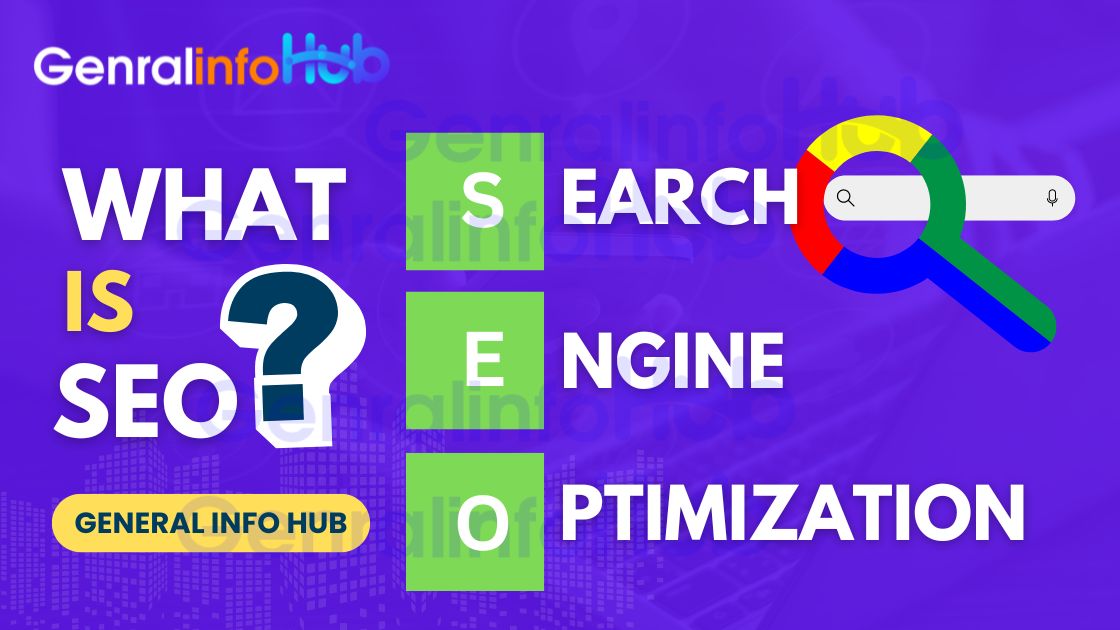Search Engine Optimization (SEO) is the practice of optimizing your website and its content to improve its visibility on search engines like Google, Bing, and Yahoo. The goal of SEO is to increase the quantity and quality of organic (non-paid) traffic to your website by making it easier for search engines to find, index, and rank your site higher in search engine results pages (SERPs).
Why is SEO Important?
Search engine optimization SEO is crucial for several reasons:
Increased Visibility: The higher your website ranks on search engine results pages, the more likely users are to click on your link. Most users rarely go beyond the first page of search results, so appearing in the top results is essential for visibility.
Credibility and Trust: Websites that rank higher are often perceived as more credible and trustworthy by users. By implementing SEO best practices, you help establish your website as a reliable source of information in your industry.
Improved User Experience: Good SEO practices include optimizing your website’s speed, making it mobile-friendly, and providing valuable content. These factors also improve the user experience, which can lead to higher engagement and conversions.
Cost-Effective Marketing: Unlike paid advertising, organic traffic generated through SEO doesn’t require you to spend money on ads. While SEO takes time to implement, the long-term results provide a steady stream of potential customers at a lower cost.
Competitive Advantage: If your competitors are investing in search engine optimization and you’re not, you could be losing potential customers to them. SEO helps you stay competitive in your industry.
Types of SEO
Search engine optimization (SEO) consists of several different strategies. Understanding the different types can help you tailor your efforts for the best results.
On-Page SEO refers to the optimization of individual web pages to rank higher in search results. This involves both the content and HTML source code of a page.
Key Elements of On-page SEO include:
Keyword Research: Identifying the right keywords that your target audience is searching for.
Meta Tags Optimization: Crafting effective meta titles and descriptions that include your primary keywords.
URL Structure: Using descriptive, keyword-rich URLs.
Internal Linking: Linking to other pages within your site to enhance navigation and indexation by search engines.
Content Optimization: Ensuring that your content is informative, engaging, and well-optimized with relevant keywords.
Off-Page SEO focuses on actions taken outside your website to improve your search engine rankings. It’s about building your website’s authority and reputation across the web.
Common off-page SEO techniques include:
Backlink Building: Acquiring high-quality backlinks from authoritative websites. Backlinks are a major ranking factor for search engines.
Social Signals: Increased social media engagement, such as likes, shares, and comments, can indirectly boost your search engine rankings.
Guest Blogging: Writing guest posts on reputable blogs can generate backlinks and drive traffic to your site.
Technical SEO involves optimizing your website’s infrastructure so that search engines can easily crawl and index your content. It ensures that your website is technically sound and performs well.
Important aspects of technical SEO include:
Site Speed Optimization: A faster website leads to a better user experience and higher rankings.
Mobile-Friendliness: Ensuring that your site is responsive and works well on all devices.
XML Sitemaps: Submitting a sitemap to search engines to help them crawl your site more efficiently.
Structured Data (Schema Markup): Adding structured data to help search engines better understand your content.
Local SEO focuses on optimizing your website for local search results. It is particularly important for businesses with physical locations or those serving specific geographic areas.
Key aspects of local SEO include:
Google My Business Optimization: Setting up and optimizing your Google My Business listing.
Local Citations: Ensuring that your business’s name, address, and phone number (NAP) are consistent across the web.
Customer Reviews: Encouraging satisfied customers to leave positive reviews can improve your local rankings.
How Does SEO Work?
Search engines like Google use algorithms to analyze websites and determine which ones are most relevant for specific search queries.
These algorithms consider various factors, including:
Crawling and Indexing: Search engines use “crawlers” or “bots” to scan the web and index content. If your website is well-structured and easily navigable, search engines can crawl and index your content more effectively.
Relevance: Search engines assess how relevant your content is to a user’s search query. Optimizing for keywords ensures that your website appears in the results for relevant searches.
Authority: Search engines determine the authority of your site based on factors such as backlinks, content quality, and user engagement. The more authoritative your site appears, the higher it will rank.
User Experience: Search engines also consider user experience factors like page load speed, mobile-friendliness, and ease of navigation when ranking websites.
Conclusion
SEO is essential for improving a website’s visibility on search engines, driving organic traffic, and attracting potential customers. By optimizing content, keywords, and site structure, businesses can rank higher in search results. Effective SEO strategies help build brand credibility, enhance user experience, and boost long-term growth in the competitive digital landscape.






Leave a Reply